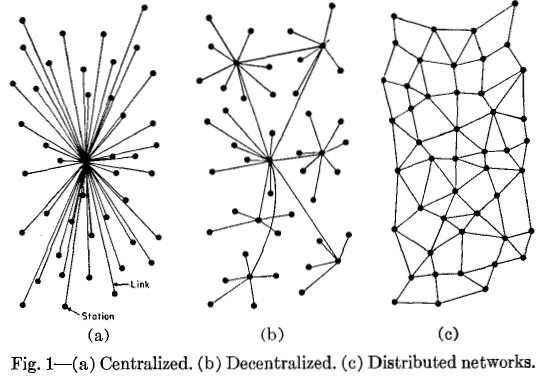Plebbitor
They pay the devs via bounties and meeting milestones.
We tried iroh but it wasn't fit for purpose. We have tackled the moderation exactly how you've described it. Allowing multiple people to control a community. We're in the process of implementing it. Our version of this allows people to create multicommunities where it shows similar communities in one sub.
Activity pub would be interesting but plebbit is so technologically different were not sure it would be technically possible. We forgo the concept of instances entirely allowing Plebbit to work closer to Reddit, where you just search a sub. Global admins don't exist on Plebbit. Subs can still share ban lists if they wish but its optional
Plebbit is always looking for new devs, join our telegram group @joinplebbit to discuss with the main dev about joining the project.
we use IPNS for mutable data (like upvote counts, reply counts, etc) https://specs.ipfs.tech/ipns/ipns-record/ and gossipsub for an author node to communicate their publication to a community node https://docs.libp2p.io/concepts/pubsub/overview/
Plebbit differs from Nostr in that Nostr is federated (using instances), whereas Plebbit is P2P (fully decentralized). Plebbit uses IPFS, which is more similar to BitTorrent, which is pure P2P as well.
The issue with federations is that their instances are not easy to set up, most users don't have an incentive to do so, and even if they did, they are not censorship resistant at all, because they work like regularly centralized websites. Your Nostr/Lemmy/Mastodon instance can get DDOS'd, deplatformed by the SSL certificate provider, deplatformed by the datacenter, deplatformed by the domain name registrar. The instance admin can get personally doxxed and harassed, they can get personally sued for hosting something a user posted, etc. And instances can block each other.
Whereas running a node on Plebbit is as easy as opening up one of its desktop clients, which automatically run the custom IPFS node in the background, and seed all the protocol data automatically (similarly to how a BitTorrent client seeds torrents). It runs on a raspberry pi, on 4GB of RAM and consumer internet. It scales like torrents, i.e. the more users connect p2p, the faster the network gets. And most importantly, nobody can stop you or block you from connecting to another user, because there's nobody in between. This means nobody can stop you from connecting to a subplebbit (subreddit clone). If you run your own community, you're always reachable by any user on plebbit.
Steemit is A, it's a regularly centralized website with global admins, claiming to be "decentralized" simply because it's built on a blockchain. Whenever you are asking yourself whether something is "decentralized" or not, ask "how can I run a full node"? "What are the hardware requirements"? Steemit admins won't answer those questions. Whereas you can easily spin up your own ActivityPub (Mastodon or Lemmy) instance (even though those instances work like regularly centralized websites, at least you have the option to run your own).
On Plebbit, just using the desktop app of a client (like Seedit's desktop app you can download here means you are running a full node already. The app runs an IPFS node in the background, seeding all content you browse automatically, thereby improving the speed of the network for everybody else. The more nodes there are, the more decentralized the network is, so if all users can easily run a node and are incentivized to do so, then the network is properly decentralized/distributed. On Seedit, you can't run a community if you don't run a full node (the community is the node, acting like a server, and users connect to it P2P). There are no global admins.
Yes. Reddit is A, ActivityPub (Lemmy, Mastodon) is B, Plebbit (Seedit, Plebchan) is C:

https://seedit.app is a fully decentralized client for the Plebbit protocol, using a old.reddit UI.
You can also try a demo of a much faster version of Seedit, it works via public RPC: https://plebbit.mooo.com/seedit/#/hot (warning: you're using someone else's full node to browse fully P2P, so if you create a community it's in their node, it's not yours). This version showcases how you can create a community even on mobile device, running a full node remotely. But we have to build user auth for this, it's in our roadmap.


basically I was trying to think, which tech with the most adoption should decentralized/censorship resistant reddit be built on. and I thought about all the popular alternatives, mastodon/lemmy/bluesky/blockchains/etc and none of them are viable, it's simply not possible to build a sufficiently censorship resistant platform using these protocols, it must be P2P, and the most adopted P2P protocols are IPFS/libp2p, so even 3 years later, we made the only possible choice.
even if IPFS/libp2p are pretty buggy and difficult to work with, and that bluesky/nostr/lemmy already have adoption, it's simply not possible to build anything sufficiently censorship resistant with them, there are no choices other than the path we've chosen.